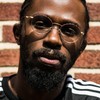Illustration by John Garrison
Forever, in comparison to his debut, is an album that feels like a more pointed reflection of things going on in Popcaan’s life, even if many of the songs are more suited for easy listening than Where We Come From. The album’s opener “Silence” is a creeping track about being weary of the people you let in. The hook warns you to be “careful who you confide inna” and on it, Poppy confesses, “Me nah lie. Me love me family, but me nuh trust the whole a dem.” The closest thing to a street banger is “Lef My Gun,” but it dually works as a keenly self-aware track about never leaving your guard down in the face of greed and envy.The confirmation felt a bit too straightforward to be real, giving the circumstances of the night. The next time I saw either of them is when they arrived in front of Triple Century’s bar on motorcycles and insighted so much excitement that the club’s entrance was locked off after they and Popcaan went in.
I finally end up directly outside of Poppy’s tent. A tall man with braids, a patchy beard, and dressed in all white guarded the entrance with his life, regularly waving off people who weren’t in the camp but trying to get close to Popcaan. The space was tight, and with nearly 100 people cramped outside of the tent, I wondered if Popcaan would even trouble himself with being around so much noise before a performance.By that point, I’d accepted that an interview wasn’t going to happen in that kind of commotion, but I still stuck around to see what might go on. Before I knew it, the clock was nearing 3:30 AM and the chatter was getting louder. Children playfully ran in and out of the tent, entertaining the men safeguarding it. Dancehall star Aidonia worked his way up, slapped fives with the man holding down the fort, and rose the tent flap up. Behind it was Popcaan who, when he saw Aidonia, cracked the type of smile you see when he’s running off jokes on Instagram. Right before they embraced, Aidonia jumped up and down in excitement as if he was getting ready to go out on the stage. Then, the tent flap swiftly closed and those eight seconds of vicarious joy ended.At first, the small percussion instruments seemed to only add to the noise already going on outside, but after 15 minutes of them hitting on the same tempo, I started to feel myself going into a trance-like state—one, in which, the time that I was waiting outside, the fact that I still hadn’t interviewed Popcaan, and the reality that I hadn’t had a drink of water in over three hours stopped mattering.
Popcaan's prayer circle. Illustration by John Garrison.
“Mi tek the words me say very serious,” he said in a hushed voice about naming his sophomore album Forever. He folded his arms together. “Like, I don’t say certain things, I won’t sing certain things ‘cause I’m always thinking positive. That is it from time. Me as a yute me always sing and tell The Almighty want me want.”As we spoke, about four cameramen stood in front of us capturing the conversation, lights blinding me when I looked up. For a minute, it felt like we were on an E! awards show red carpet special but I did my best to block them out, considering that my limited time was already running out. Before we parted ways, I asked Popcaan how he felt about his growth in the four years between Where We Come From and Forever, and if the desire to be considered as dancehall’s leading global ambassador influenced any decisions he made while crafting the project.“I sing more song for the ladies. I speak more things that’s going on in my life. More plain, you know?” he said, looking over to me, also avoiding eye contact with the cameras that hadn’t budged since we’d sat down. “‘Cause we as human beings, we go through similar struggles. So at the end of the day, when me as somebody who make it out of the struggles, me share it with people—seh mi used to struggle before. It give them more confidence to push through.”If Where We Come From was an invitation into Popcaan’s world, with uplifting songs that aimed to make people who came from the same circumstances as him feel better, Forever is the chance for Popcaan to achieve the same level of motivation, but by digging into his own intimate experiences in order to push others. And though the music of his that tends to travel furthest is more about having a good time with someone you’ve had your eyes set on, Popcaan’s sheer existence (his topical range, sometimes otherworldly voice, and international appeal) is what will likely push him to the people he so badly wants to feel a connection to his art.That, and the sense of destiny that’s been carrying him before Vybz Kartel deemed him worthy of being a member of Portmore Empire a decade ago.“When me say certain things and certain words, it can affect me. Likewise, it can build me. So that’s why me chant on me Sunday for what me want from The Almighty,” he said, before I left him at 7:30 AM. “And me get dem.”Follow Lawrence Burney on Twitter.John Garrison is a Chicago-based illustrator. Follow him on Instagram."We live in a spiritual world. We have to be aware of that, also. Me give my people dem energy and dem give me energy. That’s just the way it is.” —Popcaan
